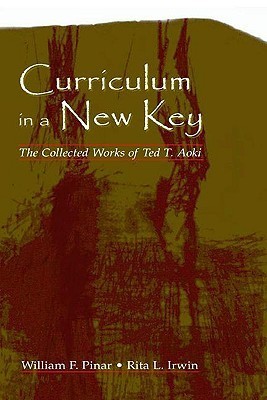Ted T. Aoki, the most prominent curriculum scholar of his generation in Canada, has influenced numerous scholars around the world. Curriculum in a New Key brings together his work, over a 30-year span, gathered here under the themes of reconceptualizing curriculum; language, culture, and curriculum; and narrative. Aoki's oeuvre is utterly unique--a complex interdisciplinary configuration of phenomenology, post-structuralism, and multiculturalism that is both theoretically and pedagogically sophisticated and speaks directly to teachers, practicing and prospective.
Curriculum in a New The Collected Works of Ted T. Aoki is an invaluable resource for graduate students, professors, and researchers in curriculum studies, and for students, faculty, and scholars of education generally.

